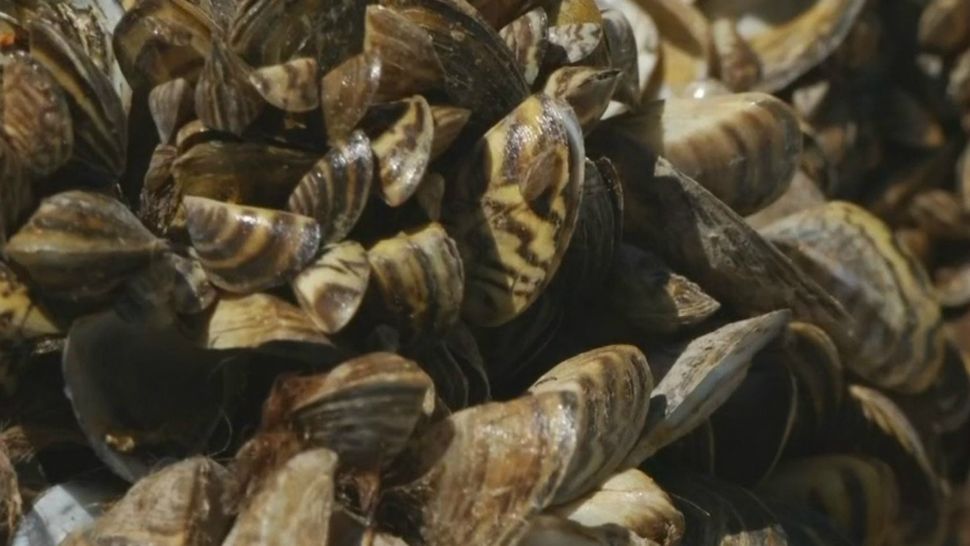Wildlife officials are on the lookout for an invasive species of mussel that has come uncomfortably close to Maine, and they are enlisting the public’s help.
The Maine Department of Inland Fisheries and Wildlife is seeking volunteers to help monitor lakes and other water bodies in northern Maine. So far, there have been more than 100 people expressing interest.
“Community science projects are a great way to get a lot of information,” said Dakota Stankowski, the department’s aquatic invasive species coordinator.
The zebra mussel, so named because of its distinct black and off-white striped shell, is a small bivalve, no more than an inch and a half long in adult form.
“They are really, really tiny,” Stankowski said.
Small as they are, they can cause big problems, especially in large numbers. Stankowski said they can wreak havoc on local ecosystems by consuming all the nutrients in an area, denying them to other animals such as fish.
Stankowski said they also like to attach to hard surfaces. With sharp edges on their shells, they can be dangerous.
“When they’re attached to, say, a rock at the bottom of a lake, all of a sudden there’s a bunch of zebra mussels attached. If someone swimming were to walk on that rock, they could cut up their feet,” she said.
The mussels can clog equipment intakes too, Stankowski said, making them a nuisance for boat motors, water pipes and filtration systems.
Elsewhere in the country, such as the Great Lakes and out west, she said, the zebra mussels have even caused problems for hydroelectric dams.
“It can be pretty economically damaging as well,” Stankowski said.
Wildlife officials in Maine first became concerned in 2022, when their counterparts in Canada found the mussels in Lake Témiscouata, in southeastern Quebec. Stankowski said that’s a problem, because the lake connects via the Madawaska River to the St. John River, which runs along part of Maine’s norther border with Canada.
So far, Canadian scientists have found trace amounts of zebra mussel DNA in the St. John River but will need another year or so of study to know whether the mussels have migrated out of the lake to the north.
Stankowski said there has been no sign of the pests in Maine yet, but local wildlife officials aren’t taking any chances. The zebra mussel larvae are microscopic, meaning even well-meaning boaters wouldn’t know if they were transporting the mussels into Maine.
“You’re not going to be able to pick them off of your boat the same you would be able to pick off a big chunk of some aquatic plant,” she said.
The only way to be sure, Stankowski said, was to clean the boat while it’s out of the water, then let it dry for several days before moving it into another body of water.
“It’s really the best preventive measure that we have,” Stankowski said.
In the meantime, Stankowski said, officials have asked the public to volunteer to monitor bodies of water, particularly in Piscataquis and Aroostook counties, by installing what she called a “settling plate,” basically a flat plate with a handle.
“We know that zebra mussels will attach to them if zebra mussels are in the system in that location,” she said.
They can be purchased for about $40 new, or volunteers can build them for roughly $35 in raw materials. Volunteers would have to place the plates, then monitor them roughly every 2-3 weeks, from May to October of this year.
Anyone wishing to learn more or participate can click here.





